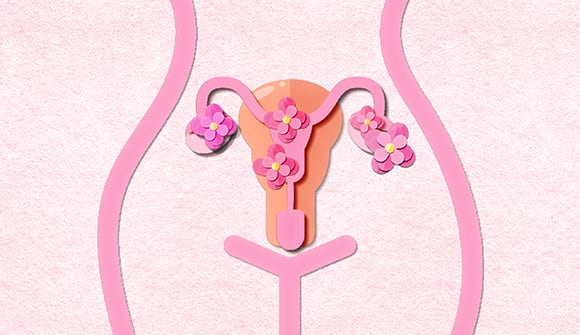Breast or bottle?
Facts about breastfeeding to help you decide.
Article Author: Beth Stambaugh
Article Date:

If you are expecting, you know there are a lot of major decisions ahead. One of the biggest is how to feed your newborn, through breastfeeding, pumping breast milk, formula feeding, or a combination.
In observance of National Breastfeeding Month, Lisa Hays, RN, IBCLC, and Jessica Garrett, RN, IBCLC, lactation consultants at Baptist Medical Center South, break down some myths and offer some truths about breastfeeding to help you make the best decision for yourself and your baby.
Breastfeeding can help prevent certain health conditions for your baby. True. Breast milk can lower the risk of respiratory and diarrheal diseases, reduce ear infections, decrease obesity later in childhood, lessen the likelihood of diabetes and cancer, and protect against allergies. It can also lower the risk of sudden infant death syndrome (SIDS) because babies generally go into a deeper sleep with formula compared to breast milk.
You will know within the first day or two if breastfeeding will work for you. False. Hays and Garrett always encourage people to breastfeed for more than just a couple of days. The first few days are usually the hardest. It can take at least two weeks to produce enough breast milk and to feel comfortable with the process. One challenge a new mom may encounter is difficulty in getting the baby to latch on to the nipple. Making sure your baby is awake and that his or her mouth is open wide usually helps.
Breastfeeding is painful. Maybe. You may feel some tenderness, but it shouldn’t be painful. Over-the-counter nipple ointment can help alleviate some tenderness. Work with your lactation consultant if you are experiencing pain, cracking or bleeding.
Once a baby takes a bottle, he or she won’t go back to the breast. Maybe. It is perfectly fine and safe to alternate, and most babies can go back and forth. This approach can give your partner a chance to help with feedings.
Breastfeeding can help you lose weight. True. Breastfeeding burns calories. You need 500 extra calories a day to breastfeed, which is more than when you’re pregnant. However, most moms who breastfeed will still hold on to a few extra pounds they can’t seem to lose. That’s normal because you need a certain body fat percentage to produce an adequate supply of milk.
You can’t drink alcohol if you are breastfeeding. False. Most sources advise you to limit alcohol to no more than one drink a day, then wait a minimum of two hours before you breastfeed or pump. You can purchase breastfeeding alcohol strips over the counter to test your milk to make sure it is safe for your baby.
Six months is the recommended amount of time to breastfeed. False. The American Academy of Pediatrics (AAP) and the World Health Organization (WHO) recommend breast milk exclusively for six months but support continued breastfeeding for two years or beyond while introducing other nutritious, solid foods.
It is OK to breastfeed a toddler. True. The AAP supports breastfeeding for two years or beyond if it is mutually desired by both mom and baby.
You can’t get pregnant while breastfeeding. False. Don’t rely on that for your birth control! It can decrease your pregnancy chance if you feed your baby solely with breastmilk, but it’s not fail-proof.
You can’t breastfeed if you’ve had breast augmentation or a reduction. False. Most moms who’ve had breast surgery have success with breastfeeding. However, in some situations, the surgery can affect the supply.
Everyone should breastfeed if they can. Neither true nor false. How you feed your baby is a personal decision and you should do what’s best for you and your baby. Biologically, breast milk is best, but if you can’t breastfeed, formula will nourish your baby. Moms should not feel bad if breastfeeding doesn’t work for them. Whether you breastfeed, formula feed, pump breast milk or use a combination of breastfeeding and formula feeding, you can still develop a close, deep bond with your new baby.
All of Baptist Health’s adult hospitals have lactation consultants who can help new moms with breastfeeding. We also offer breastfeeding and other new parenting classes. For more information or to sign up for a class, go to baptistjax.com/baby.



